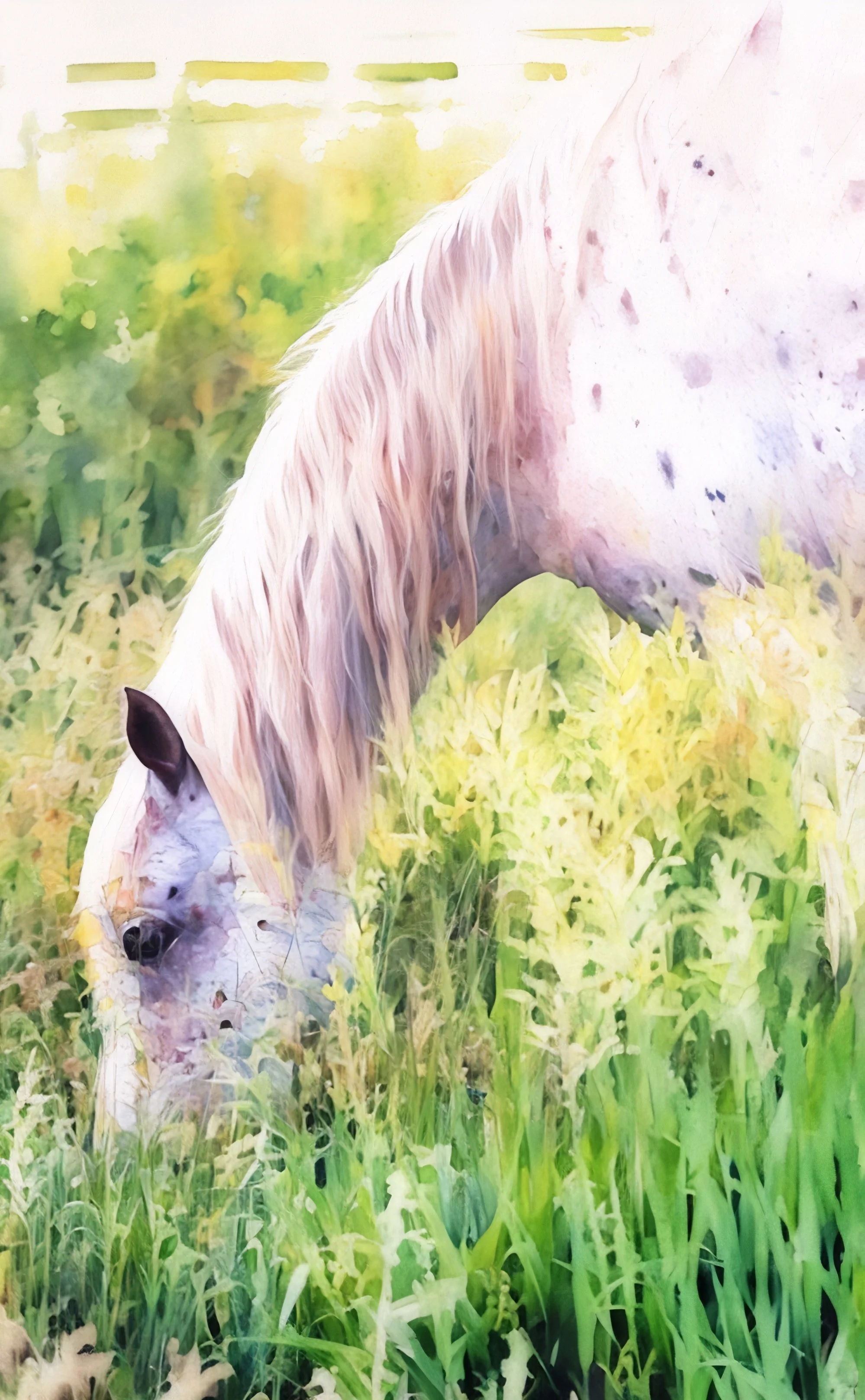Our Program
-
Program Overview
At liberty is a term used for work with horses that are loose and without a rope or reins. The horses are taught to respond to their handler's vocal cues, gestures, and body language to perform various movements such as bowing, rearing, pirouettes, etc. It is a well-established international equestrian discipline governed by the International Liberty Horse Association.
At liberty also resonates with women experiencing a breast cancer diagnosis who would benefit from a break from traditional rehabilitation and therapy and experience the physical and psychological benefits of training horses to work at liberty, starting with basic techniques and moving on to more complex work as their skills evolve.
Liberty work is done from the ground and does not involve riding. Participants with no horse experience can jump right in; the training sessions are geared to the participant's level of expertise, and they are matched with a horse that is well suited to their experience level.
Participants will find the experience liberating, exciting, and productive.
Imagine heading to the barn, helping with chores, and working with a horse as you and the horse learn new skills. Traditional therapy? Not at all. But it may be the most therapeutic intervention imaginable.
-
Program Design
We based @liberty on our successful, award-winning Soul Train model.
1. Participants form teams of 2-4 people. The team captain is the primary contact person and will be someone who has experienced a diagnosis of breast cancer. The other team members can be comprised of their natural support system (friends, relatives), or teams may be created by interested parties that we can introduce.
2. A professional horse trainer will serve as the instructor. The trainer will match the teams with an appropriate horse based on the experience of the horse and the team members.
3. Each team will create an individualized training plan with the trainer that defines a specific skill or behavior they will focus on with their horse for the next 12 weeks. The training plans use applied behavior science principles to help develop the plan. The teams will be working on various incidental handling, grooming, and leading activities with the horse, but the training component and documentation will capture one discrete focus area.
4. The individual teams meet with the trainer for one hour every other week. In between the trainer sessions, they are assigned homework that they are required to carry out in three sessions per week. Their homework sessions are scheduled on the arena calendar and may be conducted by individual team members or as a group.
5. Training logs are completed after each homework session, including photos and video, and are reviewed by the trainer, who will address questions or navigate roadblocks as they occur. The data collected through the log documentation can be quantified. Participants are also required to complete an evaluation of the program and provide testimonials regarding the personal impact at the end of each session.
6. At the end of the 12-week course, all teams gather for a ‘Show What You Know’ awards presentation and demonstrate their progress on the goal…to much encouragement and applause by the other teams.
These opportunities to gather offer informal support and recognition of shared experiences—both of experiencing breast cancer and of being amateur horse trainers.
-
Program Benefits
How Horses Help
Interacting with horses offers a powerful way to move from treatment to rehabilitation, fully addressing the cancer journey. While cancer predominantly impacts the body, the accompanying psychological effects must be acknowledged and addressed.
Horses can positively impact cancer patients and survivors. Research shows that women participating in equine therapy programs experience significant physical and psychological improvements.
They increase their strength and overall fitness level. This progress in rehabilitation had an added benefit of enriching quality of life.
Improving Psychological Health
An increasing amount of research highlights the beneficial role horses play in healing. For those faced with cancer, equine therapy provides a unique avenue to navigate the daily challenges of this life-altering condition. The often-overlooked emotional struggles associated with cancer can significantly impact patients' mental well-being.
Program horses offer a unique and powerful way for individuals to manage the stress and anxiety that often accompany life's toughest challenges.
One of the most remarkable aspects of equine experience is its holistic approach, effectively addressing the physical and emotional hurdles that cancer patients and survivors confront daily.
Time spent with horses nurtures our spirits. These magnificent creatures teach valuable lessons in trust and resilience. For cancer patients, horses symbolize hope, helping them gain perspective and fully embrace the present moment alongside their equine companions.

Get Involved
Join the herd or volunteer to help
